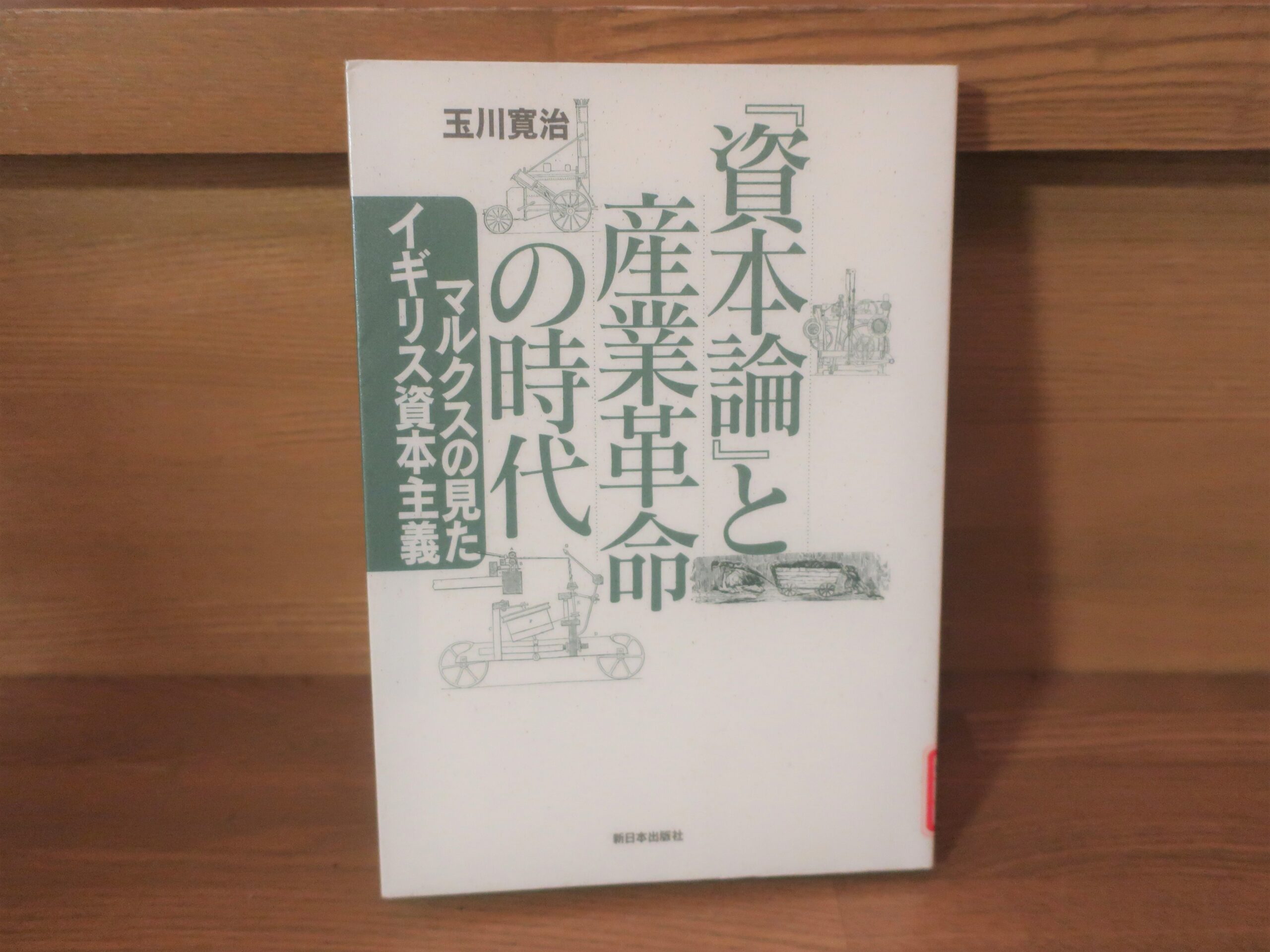Kanji Tamagawa, "'Capitalism' and the Age of the Industrial Revolution: Marx's View of British Capitalism" Summary and Comments - An appealing reference book with realistic articles based on field interviews.
Introduced here is "'Capitalism' and the Age of Industrial Revolution: Marx's View of British Capitalism" by Kanji Tamagawa, published by Shin Nihon Shuppansha in 1999.
Let's take a quick look at this book. In the "Introduction" about this book, the following was written.
The author, while working as a textile engineer, has been strongly interested in the issue of democratic reform of Japan's rule-less capitalism, which has given birth to the "History of Women Workers" and still causes the average life expectancy to decline due to overwork deaths and suicides of workers suffering from restructuring.
Marx and Engels conducted extensive research on the realities of workers under the factory system and how they viewed British capitalism, which was established through the Industrial Revolution, in Engels'sThe State of the Working Class in Britain."and Marx'sCapitalism.The lessons learned from this book must provide valuable insights for those who seek to democratically reform rule-less Japanese capitalism.
We have attempted to elucidate the factory system and the harsh realities and struggles of the workers described in these works using industrial archaeological methods, based on existing machinery, factory buildings, and industrial heritage such as water and steam engines. This book is an attempt to introduce the main points of the research in as simple a manner as possible. (The book is intended to present the main points in as simple a manner as possible.)
The author has visited industrial heritage sites such as machinery, factories, workers' houses, railroads, and canals from the Industrial Revolution period that still exist in various parts of England. Using the method of industrial archaeology, which is the study of industrial history based on physical evidence of industrial heritage, the author has been working to elucidate spinning technology and other technologies in "The Theory of Capital". We were able to make use of the results of these efforts by cooperating in the translation of the Shin Nihon Shuppansha Kamigami edition of "Capitalism," which was published in December 1997. One of the features of this edition was that it was introduced in "Shinnippon Shimbun Akahata" as "the first authorized translation with the cooperation of an industrial archaeologist.
Based on industrial heritage,Capitalism.Another purpose of this book is to let as many people as possible know how much fun it is to read and enjoy the
Shin Nihon Shuppansha, Kanji Tamagawa, Capitalism and the Age of Industrial Revolution: Marx's View of British Capitalism, p. 9-13.
As stated in this "Introduction," the author, Mr. Kanji Tamagawa, was not a scholar of Marxist thought, but an engineer who worked in the field.
There is also a profile at the end of the book.
Born in Matsumoto, Nagano, 1934
Graduated from Tokyo University of Agriculture and Technology, Faculty of Textile Science and Technology, Department of Textile Engineering
Director and Editor-in-Chief, Society of Industrial Archaeology
Member of the Japan Society for the History of Industrial Technology
Part-time lecturer at Tokyo International University
Former Engineer, Daitoh Boshoku Co.
Shin Nihon Shuppansha, Kanji Tamagawa, Capitalism and the Age of Industrial Revolution: Marx's View of British Capitalism.
In this book, the author, who was also such an engineer, actually went to the site and introduces us to the legacy of the Industrial Revolution era.
Above all, we will consider the Industrial Revolution from the perspective that Marx Engels would have seen it.
As you would expect from an engineer, the book goes into considerable detail about the mechanics of the machines of the time.
However, it is not too maniacal, and the work is very easy to read because it explains the historical flow and the state of workers at that time in an easy-to-understand manner. I also appreciate the many photos and illustrations.
There are many books written about the Industrial Revolution, but a book that takes a closer look at the Industrial Revolution from the perspective of "as Marx and Engels saw it" is quite rare.
Marx and Engels actually lived through and witnessed the Industrial Revolution era. It is because of their actual experiences that their ideas and works were born. I think it is very important to know what the Industrial Revolution was like and how they thought about it in order to learn about their ideas.
I feel that this book will be appreciated for the historical background of the time.
How Marx and Engels saw the Industrial Revolution. And furthermore, we can learn how the authors, who were attracted to Marx, viewed the Industrial Revolution. These may seem to be the same thing at first glance, but this is a serious question. We must carefully consider how the generation after Marx and Engels views the world under their influence. This work could be read with these considerations in mind.
This is a recommended book to learn about the Industrial Revolution and its connection to Marx and Engels.
The above is "Kanji Tamagawa's 'Capitalism' and the Age of the Industrial Revolution: Marx's View of British Capitalism," a reference book with realistic articles based on on-site reporting.
Next Article.
Click here to read the previous article.
Related Articles







































